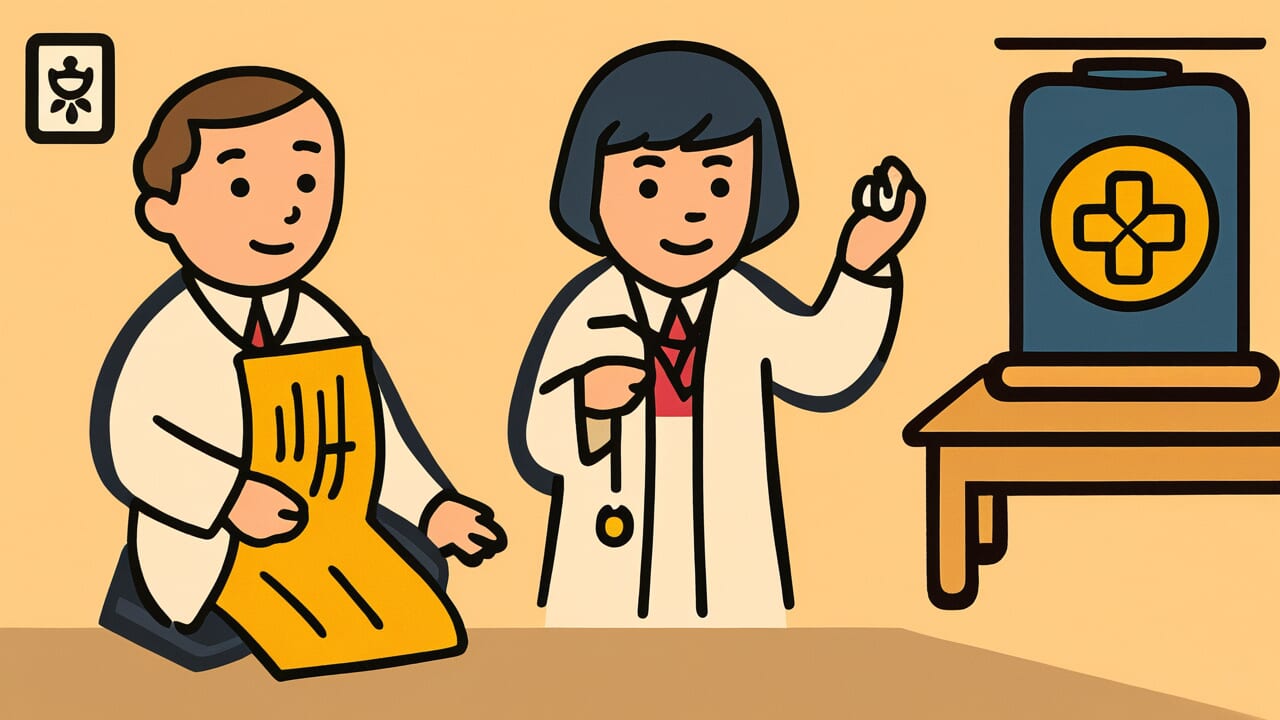How to Read “Doctor, wise person, fortunate person”
Isha chisha fukusha
Meaning of “Doctor, wise person, fortunate person”
“Doctor, wise person, fortunate person” is a proverb showing the rule of experience that these three types of people tend to succeed easily in the world.
This proverb expresses observations about what kinds of people succeed in society.
Doctors are needed by people because of their specialized skills and knowledge. Wise people are valued for their learning and education.
Fortunate people can advance things favorably because of their inborn good luck. The proverb points out this reality.
People use this saying when discussing wisdom for getting along in the world. It also comes up when talking about characteristics of successful people.
The proverb expresses a somewhat cold recognition of reality. Success depends not just on effort, but also on inborn qualities and luck.
Even today, expertise, intelligence, and good fortune remain factors that influence life. The truth this proverb shows still applies in modern times.
Origin and Etymology
Clear sources and the exact time this proverb emerged are not well documented in historical records. However, the structure of the phrase offers interesting insights.
This expression combining three elements – “doctor,” “wise person,” and “fortunate person” – is believed to be a rule of experience passed down among common people during the Edo period.
In that society, these three types actually held positions where they could succeed easily. This background gave birth to the proverb.
Doctors handled people’s lives as their profession. They always had demand and could earn high compensation.
Wise people, meaning those with learning and knowledge, were valued as teachers at temple schools or as domain officials. They could build stable positions.
Fortunate people, blessed with luck and fortune from birth, saw things go well without effort. This was the reality.
What these three share is that all could succeed through “what they possessed.” Doctors had skills, wise people had knowledge, and fortunate people had luck.
In other words, the proverb contains the harsh recognition that those without anything found it difficult to get ahead in the world.
This saying reflects social truth, born from the sharp observational eye of common people.
Usage Examples
- He corresponds to the wise person among doctor, wise person, fortunate person, so he probably built his position steadily by utilizing that knowledge
- They say doctor, wise person, fortunate person, but in the end, people who have some kind of weapon are the strong ones
Universal Wisdom
Behind the passing down of the proverb “Doctor, wise person, fortunate person” lies deep insight into the essential structure of human society.
What this proverb shows is a harsh yet universal truth. Success requires “having something.”
Ideally, we say people are born equal. But in reality, our ancestors calmly observed the fact that those with skills, knowledge, or luck stand in advantageous positions.
What’s interesting is that this proverb doesn’t deny effort. Becoming a doctor requires training. Becoming a wise person requires accumulating learning.
But at the same time, it acknowledges the reality that some people aren’t blessed with fortune no matter how hard they try.
This duality is precisely what makes this proverb profound.
Humans have lived since ancient times in societies where fairness and unfairness coexist.
They accept the reality that those blessed with talent and luck succeed more easily. Yet they still try to find their own path.
This proverb quietly reflects such human behavior. The wisdom of humans living between ideals and reality is condensed here.
When AI Hears This
The act of obtaining information actually places computational load on the brain.
For example, the moment you learn about a possible illness, your brain automatically begins calculating countless future scenarios. “What if it gets worse?” “How much will treatment cost?” “What happens to work?”
In information theory, this state is called “increased entropy.” In other words, knowing causes the options of uncertainty to explode.
What’s interesting is that in the brain of someone who doesn’t know, this calculation doesn’t run at all.
It’s like Schrödinger’s cat in quantum mechanics. Until you open the box and observe, the cat exists in a superposition of life and death.
If you don’t know about an illness, “the reality of illness” remains at zero probability of existence within you. Your brain’s energy consumption stays minimal.
Furthermore, the human brain allocates about three times the processing resources to negative information.
This is because danger detection directly connected to survival during evolution. So even with the same one bit of information, bad news places three times the load on the brain.
The illness information that doctors know is a typical example of this high-cost information.
This proverb accurately captures situations where information quantity and happiness are inversely proportional.
Knowing doesn’t necessarily bring benefit. This is also an important warning for the information society.
Lessons for Today
What this proverb teaches you today is that there isn’t just one path to success.
The path of polishing specialized skills like a doctor. The path of deepening knowledge like a wise person. And the path of making luck your ally like a fortunate person.
Which path you choose changes depending on your own qualities and environment. What matters is calmly assessing what you have and what you can develop.
At the same time, this proverb teaches humility. If you recognize that your success is supported not just by effort but also by luck, you won’t become arrogant.
Conversely, when things aren’t going well now, understanding it’s not just due to lack of effort means you won’t blame yourself more than necessary.
In modern society, polishing expertise and acquiring broad knowledge have become easier than before.
As for luck, you can increase your chances of encountering it by not neglecting preparation and waiting for opportunities.
You should have your own weapons. Finding them, polishing them, and utilizing them – that is the modern wisdom this proverb shows.



Comments